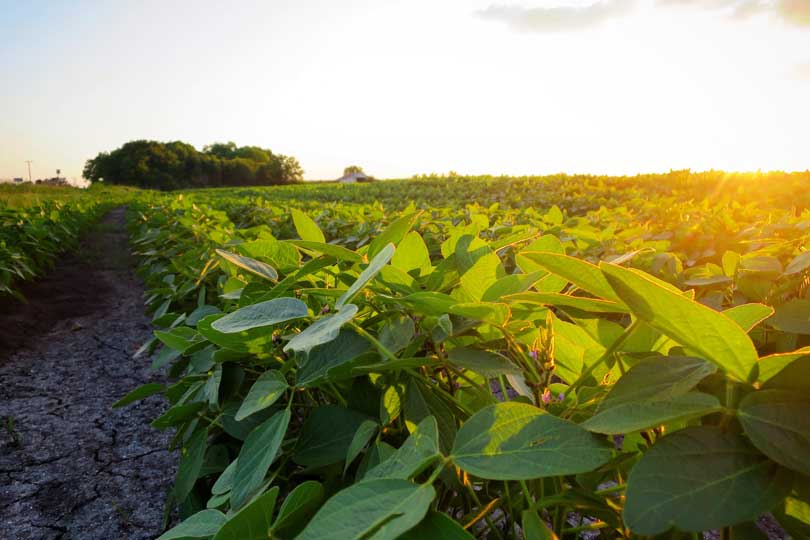By Justin Walker
Communications Specialist
Increased livestock and crop yields, coupled with trade negotiations for major markets, means the ag economy is facing mixed signals heading into 2019.
This year has proven to be a difficult one for farmers and ranchers, John Newton, chief economist for the American Farm Bureau Federation (AFBF), said. And record numbers for some commodities paint a tough picture for 2019.
“Coming out of what amounts to a pretty challenging year in 2018, in large part to record production in the livestock space, and large production in many of the major field crops, 2019 brings a lot of uncertainty,” he said.
Acreage reallocation remains to be seen, Newton said. There’s a possibility for a decrease in soybean acres as farmers might switch to more corn acres, he said. Wheat acres could also increase.
“We don’t know what Mother Nature is going to deliver in terms of temperature and rains,” he said. “So we don’t know what type of crop we are going to have on our hands next year.”
Newton expects prices to remain relatively flat, but much can change between now and the start of the year.
“If we were to have a short crop, then prices could certainly rebound. If we were to get these trade negotiations resolved, that creates market opportunities for us,” he said. “So there is certainly a whole lot of upside.”
While things can improve, Newton also noted things could get worse.
“If we have another big crop, fantastic yields again and we still face tariff headwinds, we could be facing a tough situation,” he said.
Pork numbers are at a record high. Poultry is expected to continue to climb, Newton is unsure whether or not the 10-year cattle cycle is at its end.
Trade negotiations will play a major factor.
“Folks have weathered the trade storm,” Newton said. “They have stuck by this administration to try and get fair trade from some of our biggest trade partners and get rid of some of these non-tariff barriers. If we don’t, and we are sitting here on these large inventories, our farm income could become pretty tough, pretty quick.”
Rising interest rates can also impact farmers and ranchers, and lenders will be calling on people’s notes pretty quick if things don’t turn around, Newton said.
“What people do in that type of financial situation could be a concern,” he said.
Despite the grim outlook, Newton said there are still reasons to be positive.
“I think farmers are resilient. They are going to heed these market signs,” he said. “I think the optimistic signs are thinking about where we would be if we weren’t facing some of these trade headwinds. We have a fantastic opportunity to be really competitive in a lot of these big markets.”


Make cattle prices great again